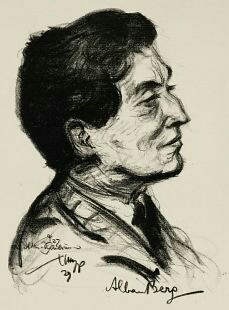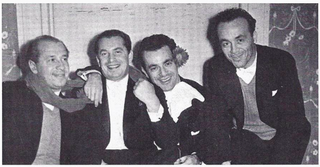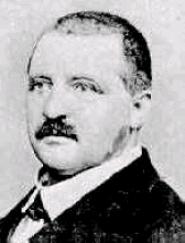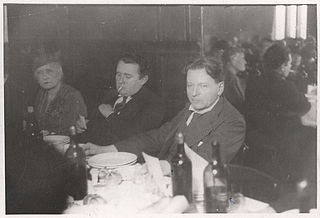Related Research Articles
Robert Wilfred Levick Simpson was an English composer and long-serving BBC producer and broadcaster.

Walter Hamor Piston Jr,, was an American composer of classical music, music theorist, and professor of music at Harvard University.

The Lyric Suite is a six-movement work for string quartet written by Alban Berg between 1925 and 1926 using methods derived from Arnold Schoenberg's twelve-tone technique. Though publicly dedicated to Alexander von Zemlinsky, the work has been shown to possess a "secret dedication" and to outline a "secret programme" Perle 1977a,.
The Melos Quartet was a much-recorded, Stuttgart-based string quartet active from 1965 until 2005, when its first violin died. It also went by the name Melos Quartett Stuttgart, partly to distinguish itself from the equally prominent chamber group the Melos Ensemble of London.

The Budapest String Quartet was a string quartet in existence from 1917 to 1967. It originally consisted of three Hungarians and a Dutchman; at the end, the quartet consisted of four Russians. A number of recordings were made for HMV/Victor through 1938; from 1940 through 1967 it recorded for Columbia Records. Additionally, several of the Quartet's live performances were recorded, at the Library of Congress and other venues.
Gloria Coates is an American composer who has lived in Munich since 1969. She studied with Alexander Tcherepnin, Otto Luening, and Jack Beeson. Her father Roland E. Kannenberg served as a Progressive in the Wisconsin State Senate from 1935 to 1939, and she sang at his rallies as a child.
Nicolas Oreste Flagello, was an American composer and conductor of classical music. He was one of the last American composers to develop a distinctive mode of expression based wholly on the principles and techniques of European late romanticism.

The Fine Arts Quartet is a chamber music ensemble founded in Chicago, United States in 1946 by Leonard Sorkin and George Sopkin. The Quartet has recorded over 200 works and has toured internationally for well over half a century, making it one of the longest enduring major string quartets. In its history, the Quartet has had two leaders: Leonard Sorkin, from 1946 to 1981, and Ralph Evans, from 1982 to the present. Its current members are violinists Ralph Evans and Efim Boico, violist Gil Sharon, and cellist Niklas Schmidt.

Vox Records is a popular and long-standing budget classical record label. The name is Latin for "voice."

The String Quartet in C minor WAB 111, was composed by Anton Bruckner's in 1862 during his tuition by Otto Kitzler.
The Sonatina for Violin and Harpsichord is a three-movement, neoclassical chamber work composed by Walter Piston in 1945, that marks the beginning of his postwar style.
String Quartet No. 1 by Walter Piston is a chamber-music work composed in 1933.
String Quartet No. 2 by Walter Piston is a chamber-music work composed in 1935.
String Quartet No. 3 by Walter Piston is a chamber-music work composed in 1947.
String Quartet No. 4 by Walter Piston is a chamber-music work composed in 1951.
Roger John Goeb was an American composer.

The Wind Quintet, Op. 26, is a chamber-music composition by Arnold Schoenberg, composed in 1923–24. It is one of the earliest of Schoenberg's compositions to use twelve-tone technique.
Bernard Zaslav was an American viola soloist and chamber musician with an extensive recording and performance career. A founding member of The Composers Quartet in 1965, he went on to play with the Fine Arts Quartet, Vermeer Quartet, and the Stanford String Quartet. He has also performed and recorded as the Zaslav Duo with his wife, pianist Naomi Zaslav.

Piano Quartet No. 2 in D minor, Op. 30, is a chamber-music composition by the Romanian composer George Enescu, written in 1943–44.